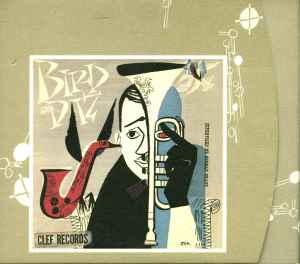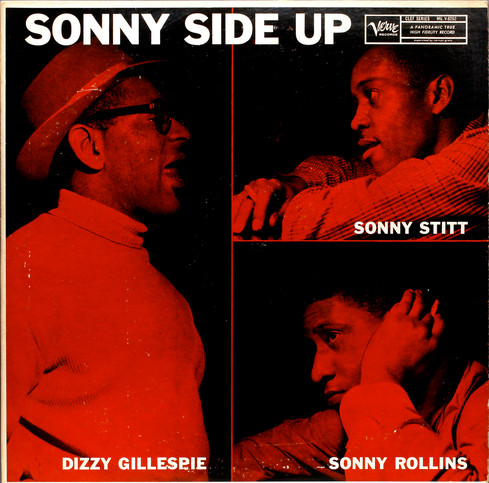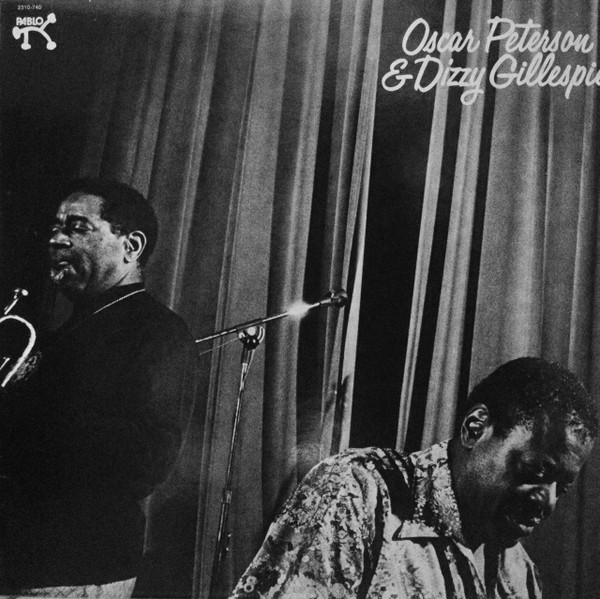Best Dizzy Gillespie Albums
Dizzy Gillespie, a pioneering figure in the world of jazz, left an indelible mark on the genre with his innovative trumpet playing and charismatic stage presence. One way to appreciate his contributions is by delving into his diverse discography, each album offering a unique glimpse into his musical genius. In this blog, we will explore some of the best albums in Dizzy Gillespie's catalog, highlighting their significance and the exceptional tracks that make them timeless classics.

- "Bird and Diz" (1952)

"Bird and Diz" stands as a testament to the groundbreaking collaboration between Dizzy Gillespie and saxophonist Charlie Parker. Recorded in 1950, this album is a snapshot of the bebop era, featuring compositions like "Bloomdido," "My Melancholy Baby," and "Relaxin' with Lee." The standard bebop instrumentation creates a vibrant and energetic atmosphere, showcasing the brilliance of Parker and Gillespie's musical partnership. The inclusion of tracks like "Passport" and "Visa" recorded earlier adds historical depth to the album.
- "Sonny Side Up" (1958)

If you are interested in learning music check out our Music Lessons in Tempe.
"Sonny Side Up" brings together the talents of Dizzy Gillespie, Sonny Rollins, and Sonny Stitt in a mesmerizing collaboration. The album features classics like "On the Sunny Side of the Street," "The Eternal Triangle," and "After Hours." The dynamic interplay between the three prominent saxophonists and Gillespie's trumpet creates an exciting and memorable listening experience. Recorded in 1957, the album captures the essence of a jam session, making it a must-listen for jazz enthusiasts.
- Diz and Getz (1955)

"Diz and Getz" sees Dizzy Gillespie teaming up with tenor saxophonist Stan Getz, resulting in a captivating blend of their distinctive styles. Tracks like "It Don't Mean a Thing" and "I Let a Song Go Out of My Heart" showcase the seamless collaboration between the two jazz icons. With the support of a stellar ensemble featuring Herb Ellis on guitar and Oscar Peterson on piano, the album remains a gem in the bebop and jazz repertoire.
- "The Modern Jazz Sextet" (1999)

"The Modern Jazz Sextet" is a late addition to Dizzy Gillespie's discography, featuring a stellar lineup including Sonny Stitt, John Lewis, Percy Heath, and more. The album, conceived by producer Norman Granz, offers a mix of explosive bebop in "Tour De Force" and soulful ballad medleys like "Old Folks/What's New?/How Deep is the Ocean?" Gillespie's trumpet prowess shines through, making this album a captivating journey through various jazz styles.
- "Oscar Peterson & Dizzy Gillespie" (1987)

The collaboration between Dizzy Gillespie and pianist Oscar Peterson results in a stellar album featuring tracks like "Caravan," "Mozambique," and "Autumn Leaves." Gillespie's trumpet work, combined with Peterson's virtuosity on the piano, creates a rich and engaging listening experience. The album, released in 1987, showcases the timeless appeal of these jazz legends and their ability to create magic together.
- "Something Old, Something New" (1963)

"Something Old, Something New" is a testament to Dizzy Gillespie's versatility as an artist. The album features a diverse range of tracks, including the bebop classic "Bebop" and the soulful "Good Bait." Gillespie's exploration of different moods and styles, from medleys to bluesy compositions, makes this album a fascinating journey through his musical evolution.
- "Have Trumpet, Will Excite!" (1959)

Released in 1959, "Have Trumpet, Will Excite!" captures Dizzy Gillespie's exuberance and flair as a performer. Tracks like "My Heart Belongs to Daddy" and "Woody 'N' You" showcase his trumpet virtuosity and the infectious energy of his ensemble. The album is a vibrant representation of Gillespie's ability to infuse joy and excitement into his music.
Dizzy Gillespie was a trailblazer in jazz, known for introducing new elements to the genre. His innovative use of harmonics and rhythms, along with complex improvisations, set him apart as a key figure in the evolution of jazz.
Gillespie's collaborations with Charlie Parker in the development of bebop were groundbreaking. They both played a crucial role in moving jazz away from the swing era, introducing a more intricate and intellectual approach to improvisation.
Gillespie's impact on other musicians was profound. He not only influenced trumpeters like Miles Davis, Fats Navarro, and Jon Faddis, but also left a lasting impression on a wide range of jazz artists. His contributions extended to composers, arrangers, and band leaders who were inspired by his musical innovations.
Gillespie was a pioneer in integrating Afro-Cuban elements into jazz, contributing to the development of Afro-Cuban jazz. His collaborations with Chano Pozo, a Cuban percussionist, led to iconic compositions like "Manteca" and "Tin Tin Deo." This fusion added a new dimension to jazz, incorporating Latin American rhythms and percussion.
Dizzy Gillespie's unconventional trumpet with a bent bell became his signature. The unique design, resulting from an accident, not only altered the instrument's tone but also became synonymous with Gillespie's distinctive style. The bent trumpet is an iconic symbol of his contributions to jazz.
Gillespie's engagement in politics was notable. During the 1964 U.S. presidential campaign, he humorously put himself forward as an independent write-in candidate, proposing a cabinet composed of jazz luminaries. This reflected his playful and charismatic personality.
Gillespie's conversion to the Baháʼí Faith in 1968 had a significant impact on his worldview. His spirituality and commitment to the oneness of humanity led him to see himself as a global citizen and humanitarian. This aspect of his life added depth to his character beyond his musical endeavors.
In his later years, Gillespie continued to contribute to jazz, leading the United Nations Orchestra in the 1980s. His collaborations, including playing the solo in Stevie Wonder's hit "Do I Do," showcased his enduring musical prowess.
Gillespie's legacy lives on through honors like the Grammy Lifetime Achievement Award, Kennedy Center Honors, and the Polar Music Prize. His influence extends not only through his recordings but also through the many musicians he inspired and mentored.
If you like this check out our article: Best Lee Morgan Albums
